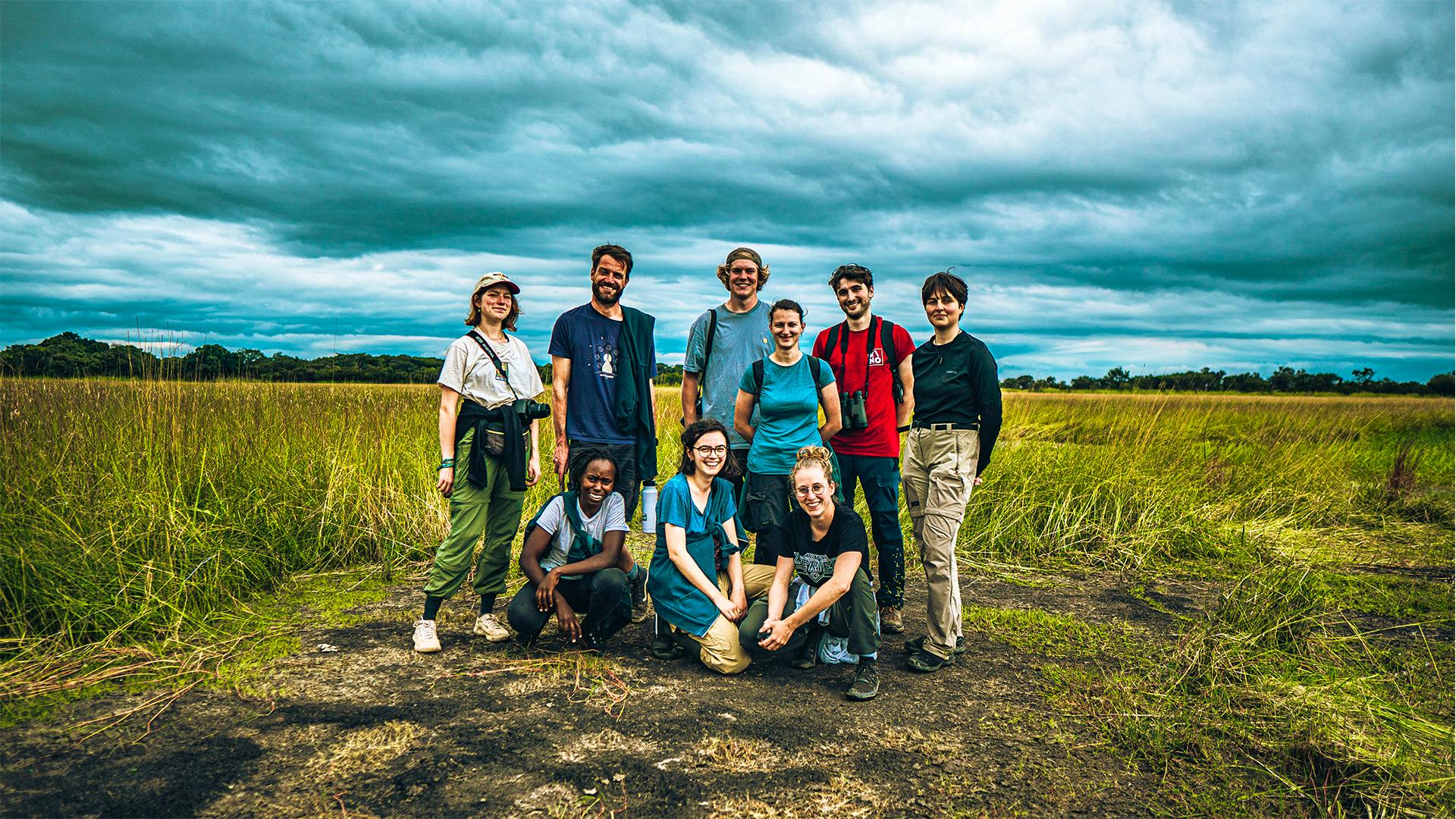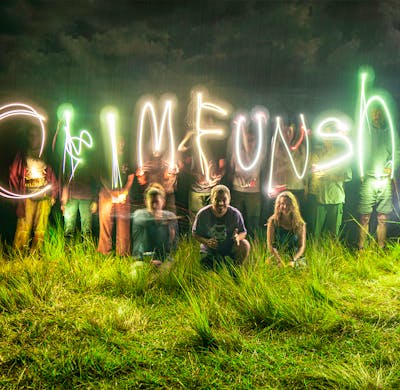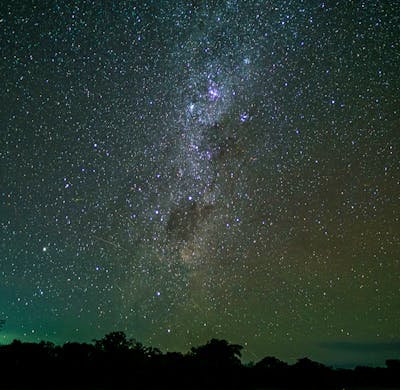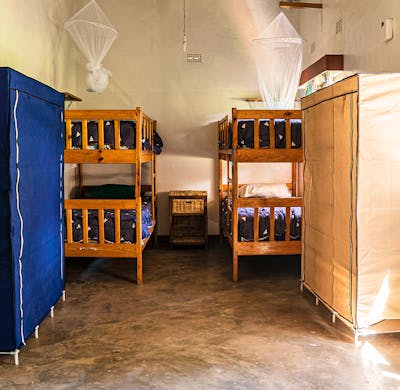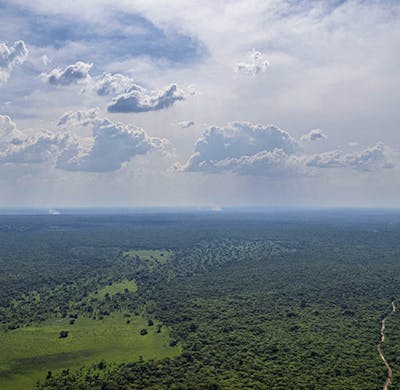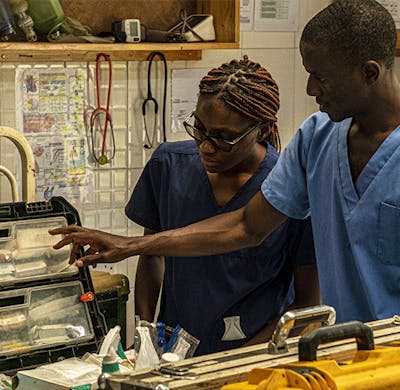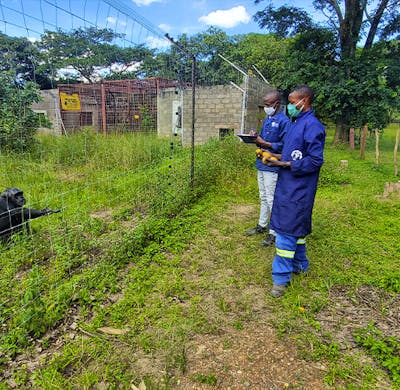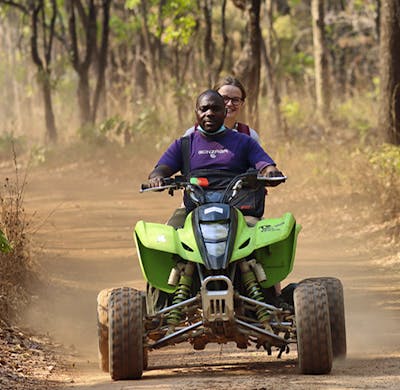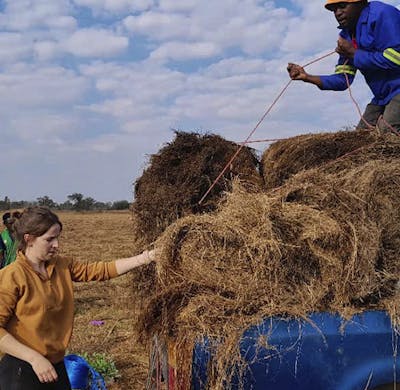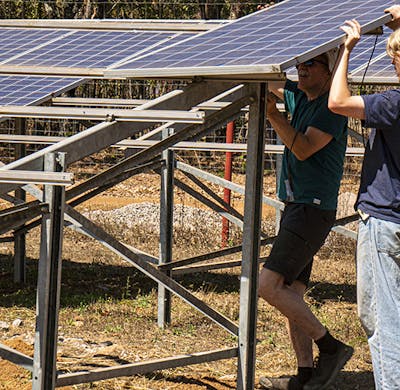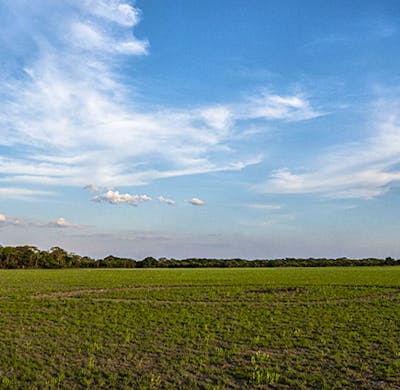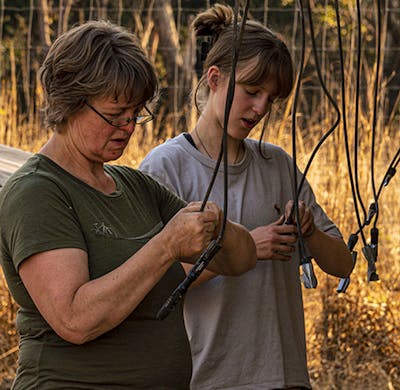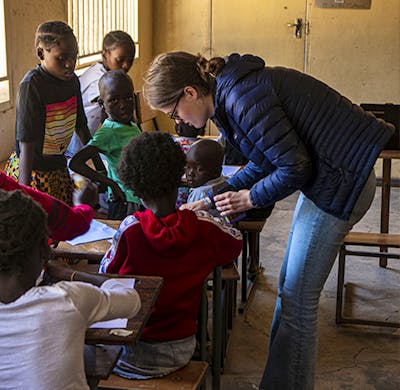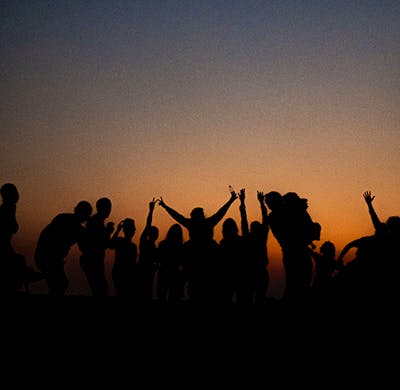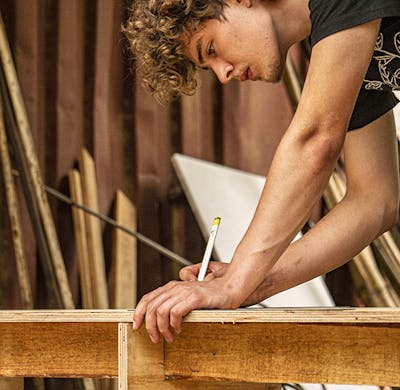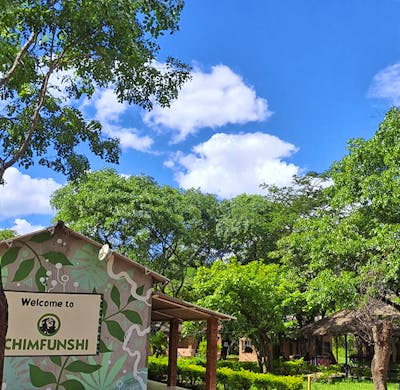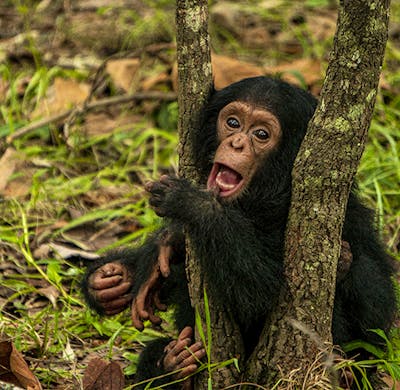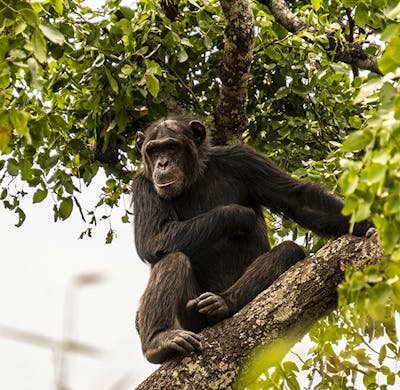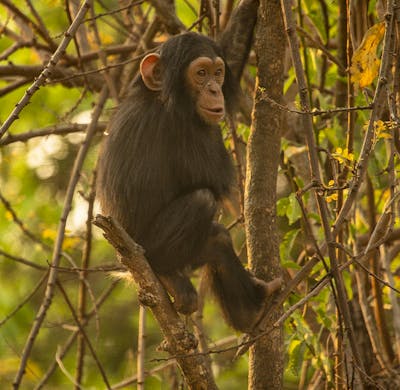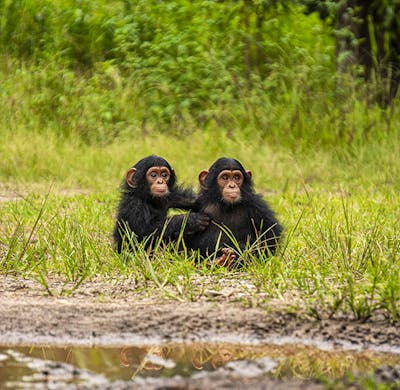Introduction to the CWOT Volunteer Program: Our volunteer
program at the Chimfunshi Wildlife Orphanage & Trust (CWOT) plays a crucial
role in addressing urgent social issues related to wildlife conservation and
community development. The protection and care of chimpanzees, as well as the
promotion of environmental awareness, are at the heart of our mission. However,
we also face challenges such as habitat loss, human-wildlife conflicts, and the
need for sustainable livelihoods in local communities. Through our volunteer
program, we aim to address these issues by providing practical assistance in
animal care, education, and sustainable agriculture, while fostering a deeper
understanding of wildlife conservation and cultural immersion.
Program Overview: Volunteers at CWOT play a vital role in
various aspects of our operations. Whether it's feeding, cleaning enclosures,
monitoring our chimpanzee populations, participating in the design and
development of educational programs for local communities and children
(awareness, training, music, art, or sports classes), or assisting with
agricultural tasks such as planting, harvesting, or irrigation, volunteers are
essential to our daily operations and long-term goals.
Environment and Locations: Volunteers will have the unique
opportunity to work and live in the heart of Zambia's wooded lands, surrounded
by breathtaking landscapes and diverse wildlife. CWOT is located in the
peaceful surroundings of the Copperbelt Province, offering a serene yet
immersive environment for volunteers to engage with nature and wildlife.
Collaboration and Teamwork: Volunteers will have the chance
to work closely with our dedicated team of staff members and volunteers from
around the world, as well as spend time with primatology researchers studying
the behavior of our chimpanzee populations. Our team is committed to providing
guidance, support, and mentorship to ensure that volunteers have a meaningful
and enriching experience during their stay with us.
Expectations and Equipment: We welcome volunteers of all
backgrounds and skill levels, with no specific experience required, only a
passion for wildlife conservation and a willingness to learn and contribute. We
provide necessary training and equipment for volunteer activities. However, it
is essential for volunteers to come prepared with field clothing, closed-toe
shoes or boots, and your own gloves and masks to prevent any transmission with
our resident primates. Rain gear is also encouraged if the period of interest
falls between December and April. Volunteers are encouraged to bring their
enthusiasm, open-mindedness, and spirit of collaboration to make the most of
their time at CWOT.
HEALTH REQUIREMENTS
Once your volunteering is confirmed with our management team, you should send us:
- Health Check: Please complete a health check with you doctor. We need to know what
your general medical condition is, as well as any specific medical conditions, allergies,
medication, etc.
- HIV test: You can ask your doctor where to get this blood test done (depending on your
country, it may be at a hospital or local HIV centre).
- TB test (Tuberculosis): Contact your health authorities to make an appointment for this
test. A lung X-ray may be required by your doctor before getting the TB injection. If you
already have done the test less than 1 year ago, it is accepted.
- Vaccination proof: You need to be up-to-date with your Hepatitis B, DTP and ROR
vaccination schemes. As some of these vaccines require multiple injections, make sure to
discuss this with your doctor well in advance.
MALARIA PROPHYLAXIS
The choice to take the prophylactic medication is yours. Malaria is a very common disease in
this area of Zambia, caused by a parasite transmitted by mosquitoes. Symptoms include fever,
flu-like symptoms, fatigue and nausea. Left untreated, patients may develop dehydration,
severe complications (including organs like the liver or brain) or even die. However when
treated rapidly, in the first 2 days of symptoms, recovery is positive and fast (<1 week). Malaria
treatment medication is easily found here.
The prophylactic medication is either a daily dose or a weekly dose. We recommend taking it
if you come for a short stay, but for longer stays (over 3 months) it is your decisions, due to side
effects and costs. Another possibility is to take Thiamine / Vit B1 tablets. All this can be discussed
in a meeting, should you require assistance.
VACCINATIONS
Primates share 98% of the same DNA as humans and are easily susceptible to human diseases,
therefore for the protection of the chimpanzees, we must insist that each person who
participates in any of our experiences provides proof of specific vaccinations and health
checks. These vaccinations and immunisations should be readily available from your local
health provider. All vaccinations must be at least two weeks old prior to your arrival at
Chimfunshi as this is the length of time necessary for your immunity levels to react.
Vaccinations required: Hepatitis B, Measles, Polio, Tetanus, ROR
Vaccinations Recommended: Yellow Fever, Meningococcal meningitis, Rabies.
TRAVEL INSURANCE
Prior to your trip, you need to arrange medical insurance which is valid in Zambia and includes
full air evacuation in the unlikely event that you need repatriation. Make sure it covers
volunteering work with animals. If it is not the case with your current insurance, you must get
extra temporary insurance for the time frame you are volunteering here.
Ask your insurance provider to give you a copy of your insurance or a letter stating that you
are covered in this context. A copy will need to be send the office as record.
VISA
We recommend getting a tourist visa, which is given on arrival, free of charge. It is valid for 30
days and easily renewable twice for free, allowing you to stay for a total of 90 days.
When getting this visa, do not mention that you will be volunteering, as in Zambia
volunteering is considered work and therefor requires a business visa, which is only
valid 30 days and is not renewable.
If you are coming for more than 3 months, you can apply for a temporary working permit, valid
for up to 6 months. This requires you to send an application form online along with some
documents, a letter from the receiving institution (Chimfunshi) and a payment of K7,000
Kwacha (around $400 USD).
Please check your country’s visa requirements before traveling to Zambia and ensure your
passport is valid for your length of stay, or as required by the Zambian government for your
unique passport.
MONEY
The national currency is Kwacha and in most places, it is the only currency accepted. Rates
are approximately at $1= 20Kw. You can check the up-to-date conversion rate with your own
currency on Xe-converter website/app.
In large supermarkets and towns, you can pay using your credit card (Mastercard, Visa) but
we recommend you take out some cash before coming to Chimfunshi as shopping at the gift
shop, paying for laundry service or asking people to get groceries for you will require cash. You
will not be spending much while in Chimfunshi so no need to withdraw too much. There are
many ATMs in Chingola and Kitwe. Please keep your money safe in your room. If needed, your
valuables can also be kept in the safe-box in the office.
ARRIVING IN ZAMBIA
Be careful, your passport must be valid for more than 4 months after the estimated date of
leaving Zambia (for example if you plan on coming for all of January, the expiry date must be
after May of the same year).
CLIMATE
The climate varies during the year. Rainy season is from mid-November to April; it can be
extremely hot and humid. You may find it uncomfortable to work in, depending on what you
are used to. Light clothing, a raincoat and wellies are needed, plus a sweatshirt for evenings.
Dry season is from May to mid-November; with cooler nights and sunny warm days in May to
August, in contrary to the very hot (over 40°C) and dry climate of September to mid-November.
RULES
As this is a small village as well as a local community, there are certain rules we ask volunteers
to follow. Most of these are based on common sense but a contract will be signed upon arrival,
agreeing to the rules.
- Appropriate clothing should be worn for work. Legs and shoulders should be covered to
protect you more effectively from the sun, insects and branches, and to minimize skin
contact with pathogens carried by animals.
- We ask everybody on camp to be respectful regarding other people, local or foreign,
as well as regarding equipment and accommodation.
- Drugs, physical and verbal violence, as well as sexual conduct with workers are
prohibited.
- Discrimination of any type is not tolerated on the Chimfunshi grounds. If you witness or
are a victim of discrimination during your stay, please contact management.
Breaking the rules can lead to an end of volunteering period with no
refunds provided.
WHAT TO PACK:
NEEDED
- Valid Passport (and copy of passport)
- Proof of vaccinations
- Bush wear clothes (sleeved shirts & long robust trousers and shorts, adequate to work in
the bush and protect from bug bites)
- Walking shoes/hiking boots
- High socks and simple underwear (it will be drying in plain view!)
- Jumper or fleece (being 1400m above sea level, it can get cool at night)
- Raincoat & rubber boats (if you come during the rainy season)
- Other clothing (to wear in the evenings and days off)
- Towel
- Hat / cap
- Sunscreen (can also be purchased in Zambia)
- Sunglasses
- Mosquito repellent
- Head lamp / torch / camping lantern
- Laundry washing powder (the most environmentally friendly possible)
- Reusable water bottle (to avoid the use of plastic here)
- A small backpack (for when you go out the whole day)
- Masks for wear when working with animals
- Personal medicines
- Positive attitude!
RECOMMENDED
- Personal toiletries (must products are available here but if you require specific brands,
bring them)
- Flipflops / sandals (to walk around the Educational centre and in the showers)
- Solar power-bank
- Adaptor plug for electrical items
- Pocket knife
- Guide book if you intend on travelling through Zambia
- Ziploc bags (to protect your possessions from the humidity)
- Snacks (if you cannot do without them!)
- Books to read (we also have some here)
- Games to play in the evenings
- iPod, earphones & charging cables (if you need music in your life)
- Camera (and a large memory card, as you will likely take many photos!)
- Notebook & pen
- Yoga mat (to keep up with your yogi skills or just work-out)
- Rechargeable batteries
- Binoculars (if you are into bird watching)
- Earplugs (if you are noise-sensitive at night)
- Mini sewing kit (although the chimps won’t mind holey clothing)
- Repair kit for your glasses
- Leave your fancy jewellery home �
USEFUL ITEMS TO DONATE (we can share an exhaustive list if you’d like)
- For Animals: medicine & medical supplies, thermometers, enrichment equipment or material
(screws, bolts, old fire hose, rope, etc), kong toys, dog games, blankets
- For the Centre and Community: Building equipment (drill/screwdriver, electric saw, screws,
hooks, etc), Arts & craft material (paint, pens, string, masking tape, bits and bobs), Educational
materials (books, textbooks, scientific posters, pencils), working clothes (warm sweatshirts &
jackets, safety clothes, hats, thick gloves), laptops, secateurs, fruit and vegetable seeds of
funky species, garden solar lights.
SOME BASIC BEMBA WORDS!
Mwashibukeni! --> Good morning!
Mulishiani ? --> How are you?
Iwe !
Isa cuno - You! Come here
Ulechita (/Mulechita) inshi? --> What are you (/plurial) doing?
Ndelya ichipushi --> I’m eating pumpkin
Nde bomba / Tule bomba --> I’m working / We’re working
Uleya (/Muleya) kwisa ? --> Where are you (/plurial) going?
Ndeya ku town / Tuleya ku farm --> I’m going to town / We’re going to the farm
Ingafwako ! --> Help !
Kolwe --> Ape/monkey
Amneeshi --> Water
Icimbusu --> Toilet
Nanaka / Wanaka --> I’m tired / You’re tired
Naumfwa insala --> I’m hungry
Nacifina --> It's heavy
Leka icongo --> Be quiet
Panoono-panoono / Bwangu --> Slowly / Fast
Mwashuali bwino --> Stay well
Tuala monana ! --> See you later!
Help care for rescued chimpanzees and play a vital role
in their protection and conservation right here at
Chimfunshi, a sanctuary Jane Goodall once described
“the most wonderful place on earth”.
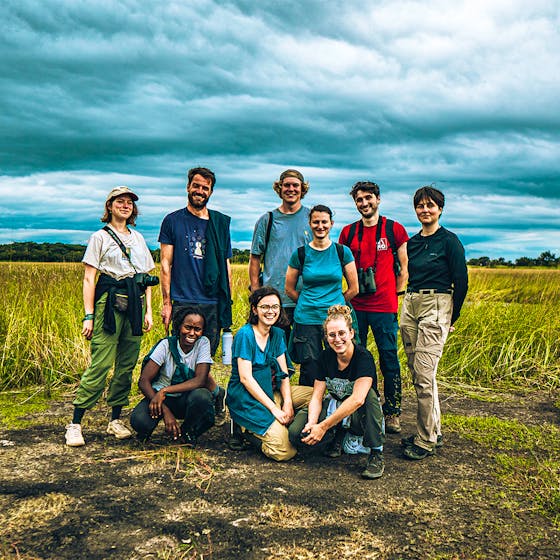
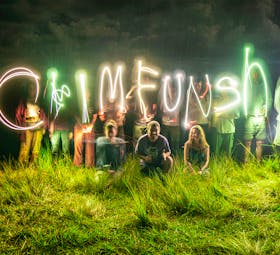
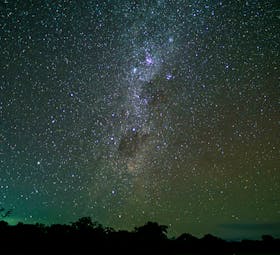
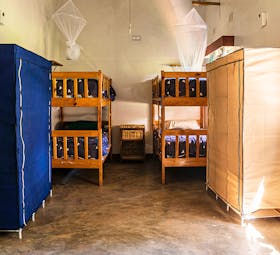
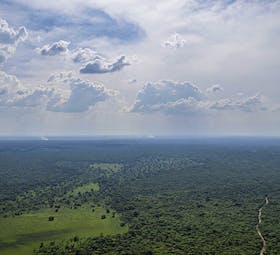
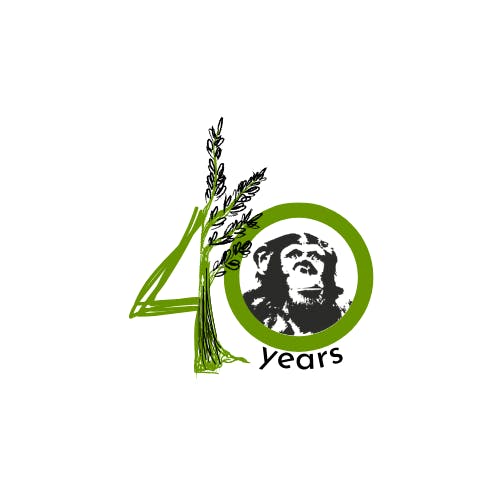
 4.8
4.8

